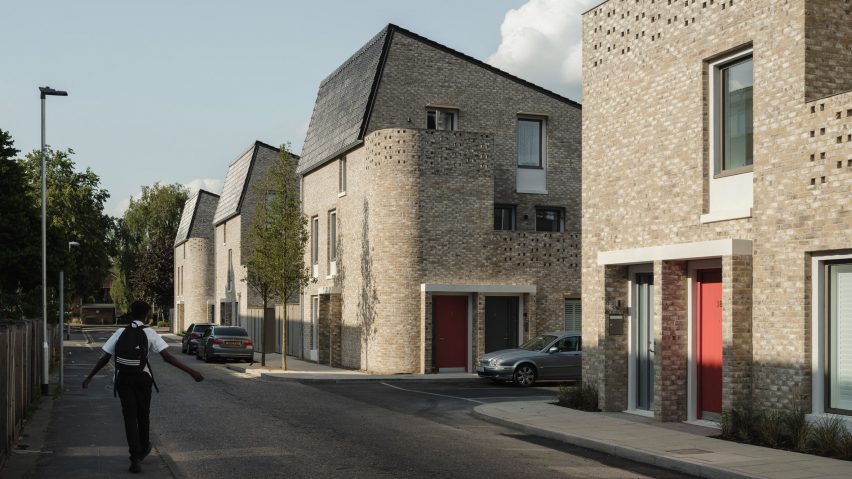
Stirling Prize-winning council homes set for Right to Buy selloff
Several council homes on the Stirling Prize-winning Goldsmith Street in Norwich could be sold at a discount just five years after they were built, Dezeen can reveal as part of our Social Housing Revival series.
A Freedom of Information Act request submitted to Norwich City Council by Dezeen found that seven of the homes in the award-winning social-housing development are already subject to Right to Buy applications, having only been completed in 2019.
Right to Buy is a government policy that allows council-housing tenants in England to purchase their homes at a significant discount.
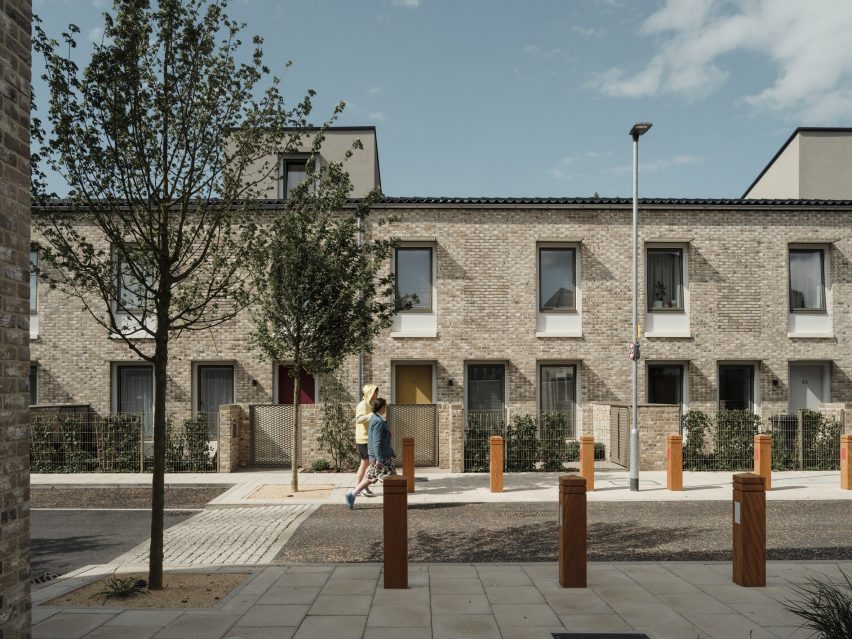
First introduced in the 1980s by Margaret Thatcher's Conservative government, it is highly contentious.
Proponents argue that Right to Buy offers a route into home ownership for people who would otherwise not be able to afford it, while detractors claim the policy has decimated Britain's precious social-housing stock.
Right to Buy "a disaster"
Designed by architecture studio Mikhail Riches, Goldsmith Street is the only social-housing scheme to have won the Stirling Prize – awarded to the UK's best new building – in the competition's 26-year history.
It comprises 105 homes arranged into high-density terraced streets close to Norwich city centre.
All the homes are built to Passivhaus standards, with residents' energy bills reportedly 70 per cent cheaper than the average UK household.
"That's quite a lot," Mikhail Riches co-founder Annalie Riches told Dezeen in response to the Right to Buy figures.
"It's great they want to buy them but the long-term view is we shouldn't be selling these houses, we should be building more of them."
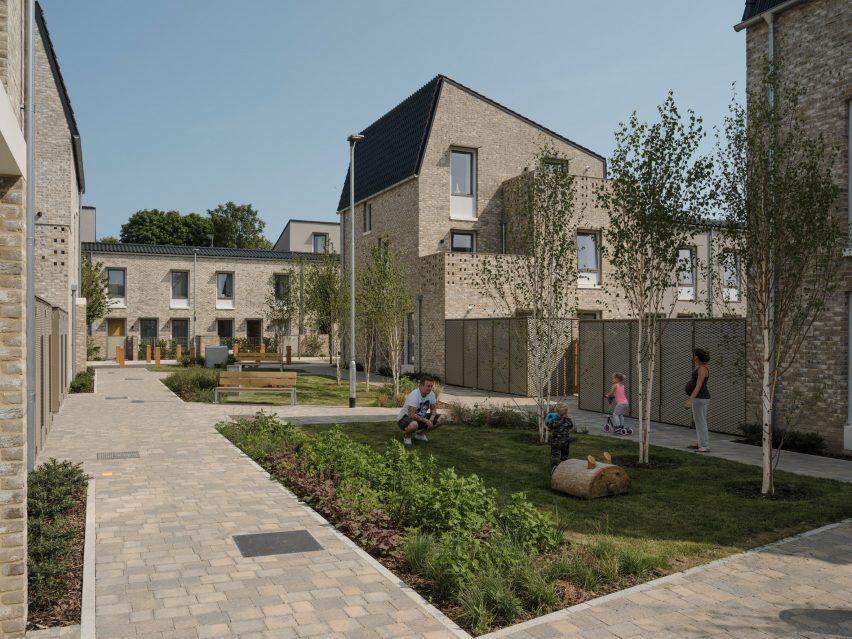
"I think [the Right to Buy] is taking away the housing stock that's the most needed," she added. "We the taxpayers are funding the discount, the councils are losing assets which they need."
Goldsmith Street's Stirling Prize win in 2019 was widely praised, with Invisible Studio founder Piers Taylor writing in Dezeen that the scheme "offers a roadmap for precisely the type of housing the UK needs".
Reacting to the news that council homes on Goldsmith Street could now be sold under the Right to Buy, Taylor called the policy "a disaster".
"Right to Buy is a disaster for our social infrastructure that fuels unaffordability and perpetuates the sense that houses are commodities and vehicles for financial speculation," he told Dezeen.
"Margaret Thatcher started the rot in 1979 by leading the Conservative government that began to sell off council housing with a general sentiment that housing was something only the middle classes and above were entitled to, and ultimately society was something – if it was anything – where you swam or sunk," he added.
"Now, much of the UK has well and truly sunk, and there is no foreseeable way out of the housing crisis, which is not a matter of design or supply, but economics and politics."
Veteran housing architect Kate Macintosh, known for Dawson's Heights and Macintosh Court in south London, said Right to Buy is "the big fly in the ointment" for councils seeking to build more housing.
"You have to ask yourself: what motivation is there for a local authority to strain every sinew to achieve social housing, to lose it within five years?" she told Dezeen.
Sold council homes not replaced
None of the homes on Goldsmith Street have yet been sold, and not all applications will necessarily result in a sale.
But as tenants only need to have lived in their home for three years before they are eligible for Right to Buy, it is likely more will apply before long.
Across England, the maximum Right to Buy discount available on the market value of the property is currently £96,000, or £127,9000 in London – with these figures rising to £102,400 and £136,400 in April.
Discounts are calculated based on factors such as length of tenancy and the property's value. At Goldsmith Street, these will be below the maximum because of the recent cost to the council of building the homes.
Although councils are able to put money raised through Right to Buy sales towards building new housing, they have long argued that in practice the policy is a major inhibitor of development.
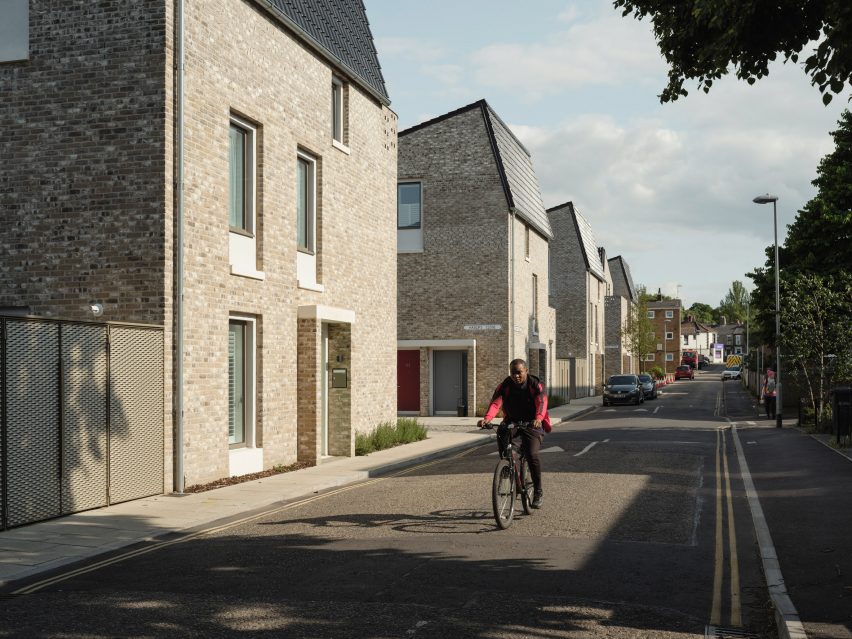
Despite a government pledge that social-housing homes sold through Right to Buy will be replaced on a one-for-one basis, only 44,690 replacements have been delivered in England since 2012 against 118,039 sold.
Meanwhile, research has shown that a significant proportion of homes sold through Right to Buy end up being rented out by private landlords.
Devolved governments in Scotland and Wales have scrapped Right to Buy.
In England, the opposition Labour Party has said it would stop short of a ban but would cut the discounts available.
The photography is by Tim Crocker.
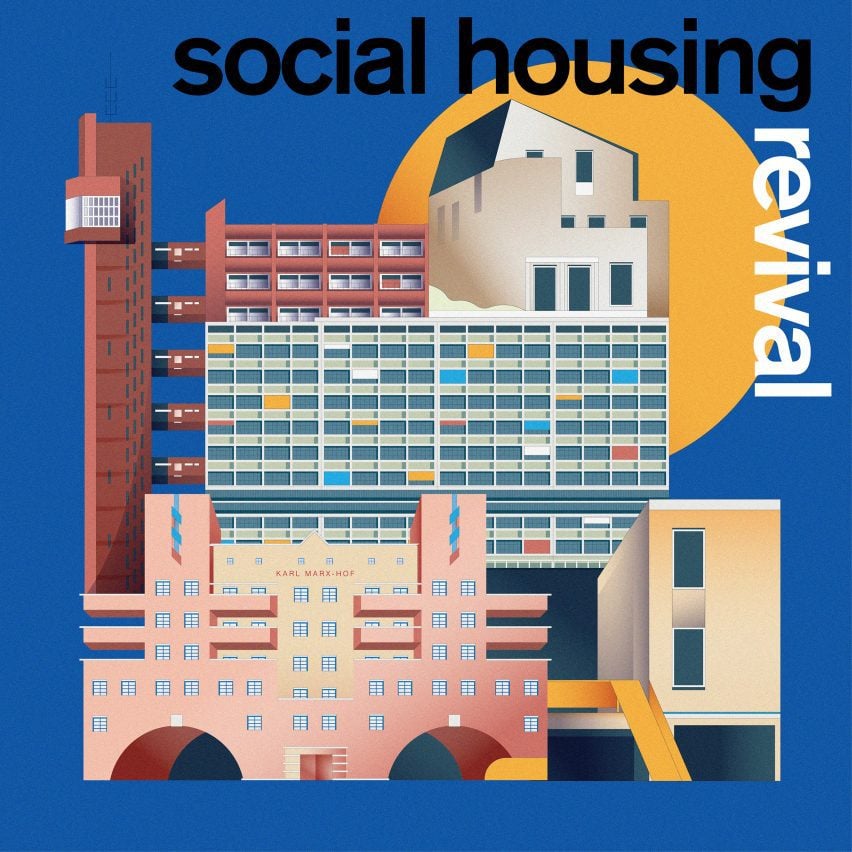
Social Housing Revival
This article is part of Dezeen's Social Housing Revival series exploring the new wave of quality social housing being built around the world, and asking whether a return to social house-building at scale can help solve affordability issues and homelessness in our major cities.